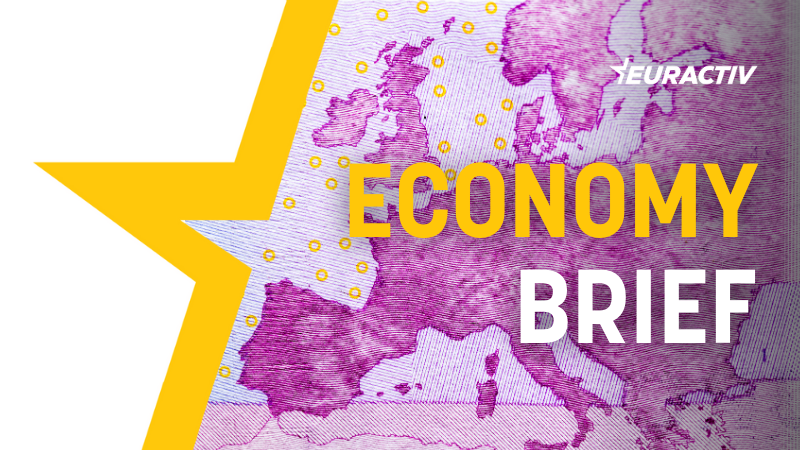While the EU’s Corporate Sustainability Due Diligence Directive (CSDDD) is currently being blocked by Germany and Italy, high-profile food corporations are calling for its swift adoption to allow for “coherent and harmonised legislation” at EU level.
The CSDDD aims to hold companies accountable for human rights violations and environmental damage in their supply chains.
Companies would therefore be required to comply with certain due diligence rules to identify and avoid negative human rights impacts, such as through child labour, and to compensate for potential negative impacts.
While a large part of the industry is critical of these due diligence rules and sees European competitiveness jeopardised by the stricter rules, representatives of the food industry are calling for the CSDDD to be implemented quickly.
“The obligations in the directive ensure a high level of alignment with the internationally recognised standards on due diligence,” said food companies Ferrero (Nutella, among others), Mars Wrigley (Mars, Snickers) and Mondelez (Milka, Oreo) in a joint letter to the Italian government.
The EU law “will provide common standards, instead of regulatory fragmentation that would only bring uncertainty and complexity, including for Italian companies”, it reads.
In Germany and France, where similar laws already exist, the governments have sought to harmonise the EU directive with their national laws as far as possible.
However, German FDP ministers Christian Lindner and Marco Buschmann criticised the fact that the EU directive would go beyond German law, particularly with regard to the civil liability of companies.
In contrast to the EU’s legal approach, the German Supply Chain Act, which came into force at the beginning of this year, does not provide for civil liability in the event of a breach of due diligence obligations.
The FDP ministers therefore ensured that Germany abstained, which under EU voting rules counts as a de facto ‘no’ vote.
As Italy would also have abstained in a vote by EU ambassadors, and some smaller countries also have reservations, there is currently not a sufficient majority among EU member states in favour of the law.

German-Italian revolt delays EU’s due diligence law
The Corporate Sustainability Due Diligence Directive (CSDDD) has been taken off the agenda of today’s meeting of EU ambassadors, as it was not expected to reach a majority among EU countries. So far, no new date for the vote has been set.
Pressure on Germany is growing
Belgium, which currently holds the rotating EU presidency, took the law off the agenda of a meeting of EU ambassadors two weeks ago as a precautionary measure. According to diplomatic sources, no new date has been set for the vote.
Instead, the Belgian government is currently trying to find a solution in bilateral talks with wavering candidates, including Germany and Italy.
However, an agreement between member states and the EU Parliament had already been reached in December 2023, making possible changes to the law difficult.
The EU Parliament’s chief negotiator, Dutch MEP Lara Wolters (S&D), declined to comment on the matter to Euractiv.
However, she told Dutch TV station NOS on Sunday that the FDP’s behaviour reminded her of an “angry toddler”.
“Germany’s reputation as a reliable partner in the EU is being jeopardised by the FDP,” said Wolters.
The FDP, on the other hand, blamed the delay on the Spanish government, which held the presidency before Belgium.
According to FDP MEP Svenja Hahn, Spain had pushed so hard for an agreement during its presidency that important political issues were left unresolved, which is why some elements of the law should be renegotiated, she said.

Renegotiations possible?
Green MEP Anna Cavazzini said on Friday that the call for renegotiations was “outrageous”, but that she still hoped that the law would be “saved”.
“Normally you have the trilogue procedure, you reach a very balanced compromise,” said Cavazzini. “And of course from the Parliament’s perspective, it is disrespectful to then question this whole result.”
Cavazzini suspects that the FDP is fundamentally opposed to the law and is therefore not interested in renegotiations. “And I find that quite frustrating,” she said.
It is also unclear whether an agreement will be reached before the European elections, as the last plenary session will take place in April, when the law would have to be finalised.
Negotiations could also resume after the European elections, although the European Parliament is expected to undergo a shift to the right, which could lead to the law being watered down.
Environmental organisations and the youth organisation of the German Social Democratic Party (SPD), the Jusos, recently called on Chancellor Olaf Scholz (SPD/S&D) to “dissuade the FDP from its blockade course”.
The EU’s CSDDD is “too big to fail”, Isabella Ritter from the NGO ShareAction told Euractiv.
Scholz, who is seen as a supporter of the law, could use his official final say, similar to his decision to extend the operation of Germany’s last nuclear power plants by four and a half months in 2023.
However, German government spokesman Steffen Hebestreit said last week that the chancellor’s office was not planning any action on this issue, making it unlikely that they would jeopardise peace in the coalition over the EU law.
[Edited by Angelo Di Mambro/Nathalie Weatherald]
Read more with Euractiv

The EU expects US to remove “fully and promptly” the duties on Spanish olives
The World Trade Organisation confirmed that the anti-dumping and anti-subsidy duties imposed by the US on ripe olives from Spain are not consistent with international trade rules and the EU expects Washington to take action to comply, with limited “scope for compromise”, an EU Commission note seen by Euractiv stated.







.png)
 10 months ago
39
10 months ago
39



 English (US)
English (US)